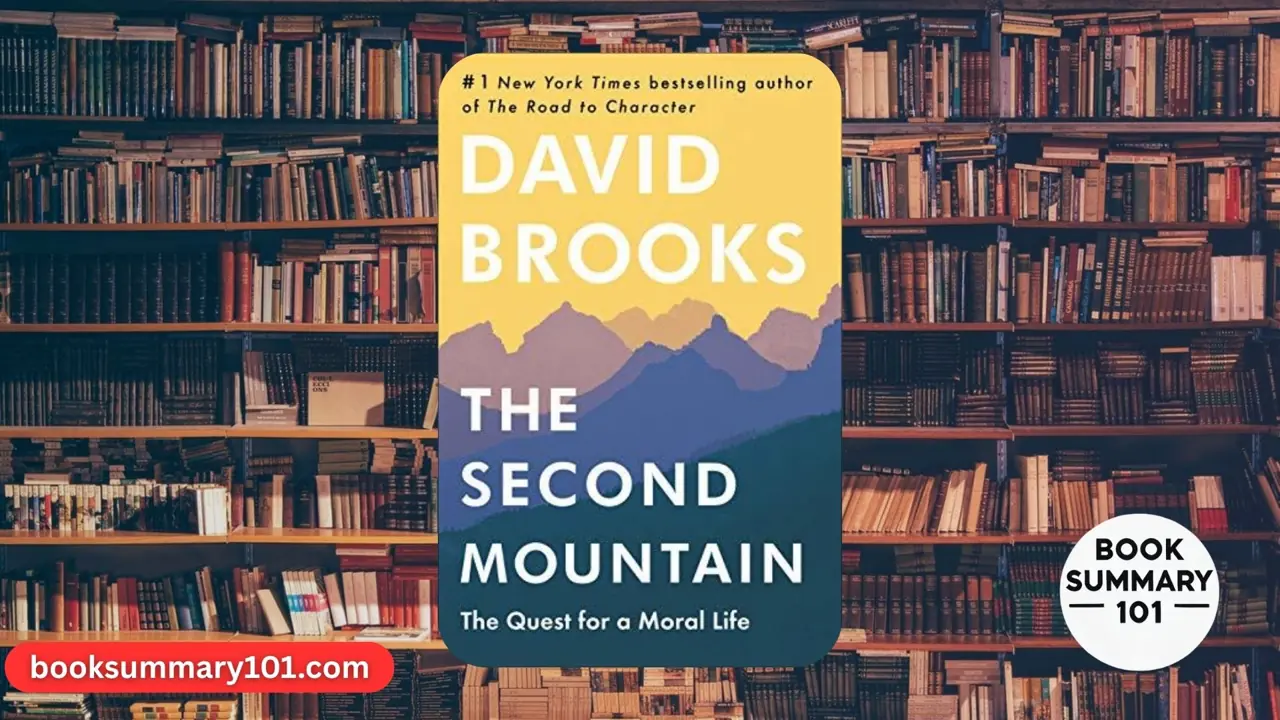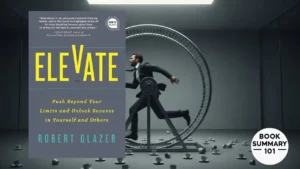What if the key to a fulfilling life isn’t success but surrender? That’s the heart of David Brooks’ The Second Mountain: The Quest for a Moral Life. Brooks invites us to rethink our lives, our values, and even how we define happiness. This book isn’t just for deep thinkers—it’s for anyone searching for meaning beyond the ordinary.
Here’s the gist of the book and why you’ll want to pick it up.
Why Read This Book?
- It Challenges What Success Looks Like: If you’ve ever felt like the “hustle culture” of climbing the corporate ladder or amassing stuff is overrated, this book is a breath of fresh air.
- It’s Hopeful: Whether you’re on the first mountain or struggling to find the second, Brooks assures you that life’s best work often starts after failure or disillusionment.
- It’s Practical: Brooks gives advice on how to build deeper relationships, create a sense of belonging, and embrace a life of service. This isn’t just philosophy—it’s a guide to living better.
What’s the Deal with the Two Mountains?
David Brooks structures his book around the metaphor of two mountains, and it’s such a powerful way to think about our lives. It’s a concept that instantly resonates because we’ve all felt the tension between wanting personal success and longing for something deeper. Let’s break it down:
The First Mountain – The Climb of Self-Focus
The first mountain is where most of us start. Think about your younger years or maybe even where you are right now. It’s about building your life—getting an education, finding a job, securing a promotion, and checking off those milestones society applauds. The focus is on individual success and achievement.
We chase these things because we’re told they’ll bring happiness. And let’s be real—there’s nothing wrong with wanting to succeed! At this stage, life is all about personal goals:
- Career advancement: Climbing the corporate ladder or building your business.
- Financial independence: Saving up for that dream home or car.
- Personal recognition: Awards, accolades, or even the approval of your peers.
But here’s the catch: for many, reaching the top of the first mountain feels anticlimactic. You might achieve the success you’ve worked for, but then you start to wonder: Is this it? The victories feel hollow, and the pursuit can leave you burned out, lonely, or disconnected from what truly matters.
The Valley – The Turning Point
Between the first and second mountains lies the valley—a low point that can be life-altering. This is often where you face a major setback or crisis. Maybe it’s a health scare, the end of a relationship, a career failure, or even just a creeping sense of dissatisfaction.
For David Brooks, this valley came in the form of personal struggles that left him feeling isolated and unfulfilled. He calls this stage the “unraveling,” where you start questioning everything you thought you wanted.
It’s painful but necessary. The valley is where you’re forced to confront your priorities and ask hard questions like:
- Who am I outside of my achievements?
- What really matters to me?
- How can I live a life that feels authentic and meaningful?
The Second Mountain – The Climb of Purpose
This is where the magic happens. The second mountain represents a shift in focus—from me to we. It’s not about what you can achieve for yourself but how you can serve others. People who climb this mountain aren’t just looking for success; they’re looking for significance.
On the second mountain, your values change. Instead of chasing personal goals, you start prioritizing:
- Relationships: Deep connections with family, friends, and community become your anchor.
- Service: Whether it’s through your work, volunteering, or mentoring, you find joy in giving.
- Faith or Spirituality: Many second-mountain climbers embrace a sense of the divine or a connection to something greater than themselves.
- Commitment: This could mean dedicating yourself to a cause, a craft, or even a person with unwavering loyalty.
This mountain isn’t about flashy achievements. It’s quieter, richer, and infinitely more fulfilling. The paradox is that by giving yourself away—to your community, your loved ones, or your passions—you actually find yourself.
Why the Two Mountains Matter
Brooks argues that we live in a society obsessed with first-mountain success. Social media, corporate culture, and even our education system push us toward individualism and personal achievement. But the second mountain offers an alternative—a path to true happiness and belonging.
The beauty of the second mountain is that it doesn’t depend on where you started or how much money you have. Anyone can start climbing it, at any time. The question is: Are you ready to leave the first mountain behind?
This extended metaphor isn’t just philosophical—it’s deeply practical. It encourages us to re-evaluate our choices and rethink how we measure success. And, if you’ve been feeling stuck, it’s a roadmap for where to go next.
Real-Life Examples
Brooks weaves in examples of people who left their “first mountain” lives for something bigger:
- The Teacher Who Stays: He shares the story of a teacher who sacrifices lucrative opportunities to remain in a struggling school district because she knows she’s changing lives.
- A Businessman Turned Philanthropist: One man gives up a corporate career to work with the homeless, finding more joy in giving than he ever did in climbing the corporate ladder.
- Brooks Himself: In a vulnerable moment, Brooks shares his own journey through a personal crisis, where he felt lonely and untethered, only to rediscover community and love on the second mountain.
These stories feel relatable and inspiring—they’re not about superheroes; they’re about ordinary people making extraordinary choices.
What’s the Catch?
It’s worth noting that Brooks can get pretty philosophical. If you’re looking for a quick “how-to” guide, this book might feel a bit meandering. But if you’re open to reflection and a deeper dive, it’s an incredibly rewarding read.
Join the Conversation!
So, where are you on your journey? Are you still climbing the first mountain, or have you started the ascent of the second? What does success mean to you?
Let’s discuss in the comments below. Share your thoughts, your struggles, or even your own second-mountain moments. Because here’s the thing: life’s most meaningful climbs are better when shared.
5 quotes from The Second Mountain by David Brooks
“You can’t expect to find meaning and purpose in life by standing still. You have to commit to something outside yourself.”
This quote hits at the heart of the second mountain philosophy—true fulfillment comes not from self-centered pursuits, but from surrendering to causes, relationships, and responsibilities bigger than you.
“The self is not something you find. It is something you build. And you build it by giving yourself away.”
A beautiful reminder that identity isn’t something pre-packaged or discovered in solitude. It’s crafted through sacrifice, love, and service.
“Joy is not the result of finding yourself. It’s the result of losing yourself.”
Brooks contrasts joy with happiness here. While happiness is fleeting and often tied to external achievements, joy is deep, quiet, and rooted in connection and purpose.
“Freedom is not an ocean you want to swim across. It’s a river you want to build a bridge over, so you can get to the other side and plant yourself somewhere solid.”
He redefines freedom—not as endless choices or detachment, but as the ability to commit, to root yourself in love, faith, or service.
“We are not what we know but what we love.”
This one’s short but profound. Brooks draws from Augustine to show that our lives are shaped less by our intellect and more by the things and people we give our hearts to.



